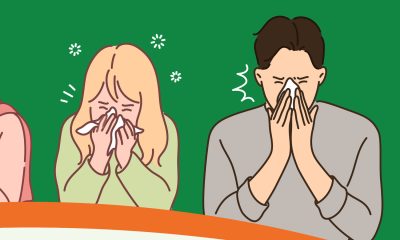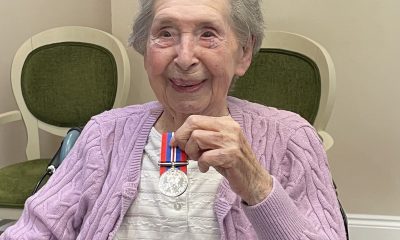By Pol Allingham via SWNS
The most powerful climate change influencers in the world may be female farmers in Indonesia, according to a new study.
Researchers discovered older men were perceived as the most influential people in their social networks, but in reality, young women had the greatest impact.
Women were less likely to be identified as opinion leaders by their peers, but their recommendations often led to real action.
Moreover, having a high number of social connections was not the most important tool for triggering large-scale change.
Researchers at the University of Sydney in Australia studied social networks among farmers on the Indonesian island of Sulawesi.
More than 2,000 Sulawesi farmers were surveyed to identify the most influential agricultural leaders in their communities, and researchers whittled results down to the 18 most popular influencers.
The top influencers were asked to convince as many other farmers as they could to improve the health of their cocoa trees using pruning scissors donated by the program.
Men dominated the pruning persuasion ranks.
A second group of 18 farmers who were not leaders of agricultural opinion were selected at random, including a larger proportion of young farmers and women.
Defying scientists’ expectations, the second group convinced twice as many of their peers to trial the scissors.
Women and younger farmers were particularly convincing.
Professor Petr Matous, from the School of Project Management and John Grill Institute for Project Leadership, said: “Our result was a real surprise – we didn’t originally set out to study the effects of gender or age.
“But what our result has demonstrated is something often remarked on anecdotally in many other settings.
“From farming and construction to banking and politics, older men are often perceived as the most influential in their networks, but in our study, they didn't have the greatest impact.
“In Indonesia, farming is highly gendered.
“Few women occupy prominent roles in local farming groups – many of which are community-based organizations aimed at improving the lives of local inhabitants and which often channel support from the government and international organizations.
“There were also a number of young men and one older woman who did really well at convincing others to use the scissors.
“What our result perhaps suggests is that while women and young people don’t usually occupy formal leadership positions in their communities and are not typically central to information and resource networks that result from roles like heading a farmer group, they may have other networks that matter, such as more active kinship ties.
“We still might need to consult and engage certain locally-respected individuals otherwise we run the risk of them potentially blocking our initiatives.
“If we want to make change, we need to first recognize the real potential of women and younger participants and then put that into practice.”
Independent nonprofit organization Swisscontact organized the experiment published in Agriculture and Human Values in a bid to train cocoa farmers to upgrade their production skills across Indonesia.
They hope new scissors will reap environmental benefits and reliable yields, and mapping farmers’ informal information ties could help them understand how to disseminate the new technology.
Nadya Aulika Runnisa, of Swisscontact Indonesia, said: “We designed the experiment to investigate the importance of perceived influencers in agricultural communities.
“Working with researchers at the University of Sydney, the results turned our previous assumptions on their heads.
“The rural communities we work with are typically traditional, hierarchical, and paternalistic – high-status individuals are typically older men.
“Our program aims to promote diversity and inclusivity, and so we’ve been looking at ways to include more youth and women in our programs – the study's result strengthens the case for doing so.”

 Animals2 days ago
Animals2 days ago
 Health6 days ago
Health6 days ago
 Wildlife5 days ago
Wildlife5 days ago
 Lifestyle1 week ago
Lifestyle1 week ago
 Good News6 days ago
Good News6 days ago
 Entertainment3 days ago
Entertainment3 days ago
 Animals2 days ago
Animals2 days ago
 Broadcast2 days ago
Broadcast2 days ago







